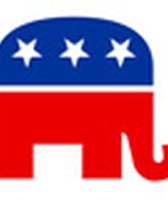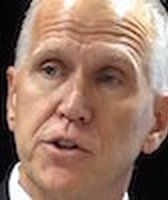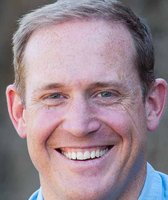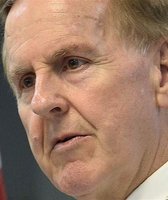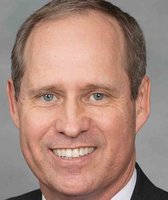Get PolitiFact in your inbox.
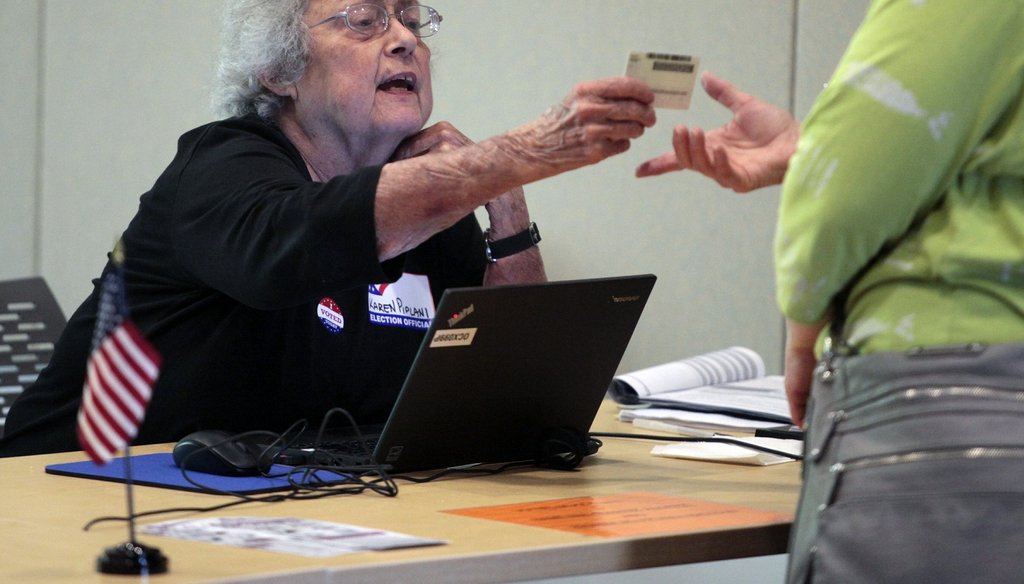
A precinct official in Chapel Hill, NC checks a photo ID in 2016.
Republican lawmakers in North Carolina are pushing to change the state constitution to require voter ID at the polls, after their last attempt to pass such a law was struck down as unconstitutional in federal court.
Early voting is underway right now, leading up to Election Day on Tuesday, Nov. 6 (and you don’t need a photo ID to vote). In addition to choosing members of Congress, the state legislature and the state court system, North Carolina voters will be able to support or oppose six proposed amendments to the state constitution.
One of the six constitutional amendments on the ballot would make way for a voter ID law. However, it’s impossible for voters to know exactly what that amendment will do since the legislature hasn’t yet written the law implementing it. Lawmakers will write the details only if the amendment passes — if so, likely during a new session scheduled to begin on Nov. 27, which is after the election but before any new legislators will be sworn in.
In the meantime, conservative lawmakers are pushing to convince voters to pass the amendment that will give them the green light to write a new voter ID law.
Rep. John Bell, the House majority leader, tweeted Monday that "it’s common sense" to require voter ID. He said that’s because "you already need an ID to" board an airplane, see an R-rated movie, cash a check or use a credit card.
However, none of that is entirely true.
It’s possible for people to do all of those actions Bell cited without a photo ID — with varying degrees of ease — and none of those things are constitutional rights, like the right to vote is. Furthermore, any rules that might exist governing IDs for banks and movie theaters are matters of corporate policy, not government-enforced laws like a voter ID requirement would be.
The strictness of such policies can therefore vary. Movie theaters rarely, if ever, check the IDs of adult customers trying to see an R-rated movie. And their enforcement of an ID policy on youngsters is typically quite lax, with few to no checks in place to stop teens and tweens from buying tickets to a kids’ movie before walking into an R-rated movie instead.
On more serious topics, retailers are generally allowed to ask for someone to show ID when they use a credit card. But Visa specifically prohibits businesses from requiring Visa cardholders to show ID to complete a purchase in most circumstances, while Mastercard and American Express require photo IDs to be shown only in certain circumstances.
As for cashing checks, major banks do typically have policies requiring a government-issued photo ID. But other businesses like payday lenders do not. One popular franchise, Speedy Cash, says on its website that "there are other forms of identification that can work" for those who want to cash a check but don’t have an ID like a license or passport.
And even the Transportation Security Administration will let people through security at airports without a photo ID, as long as they go through "an alternative identity verification process, which includes ... asking personal questions to help confirm your identity," according to the TSA’s website.
Politicians on both sides of the voter ID debate have made misleading claims to back up their cause.
The voter ID debate
Supporters of voter ID say it’s needed to stop voter fraud. Locally, federal prosecutors recently said they believe 19 voters in 2016 weren’t citizens, although it’s unclear if all 19 will eventually be found guilty.
Nationally, President Donald Trump has repeatedly made outlandish and unproven claims about voter fraud, including his claim — rated "Pants On Fire" by PolitiFact — about noncitizen voters winning North Carolina for Barack Obama in 2008.
Opponents of voter ID say voter fraud is nearly nonexistent, and they fear ID requirements are intended more to disenfranchise legitimate voters than to stop illegitimate voters.
The Washington Post found that Democratic Sen. Tammy Baldwin of Wisconsin was being misleading when she said her state’s voter ID laws kept 200,000 from voting in 2016. But on the other side, PolitiFact found that North Caroline House Speaker Tim Moore was also being misleading when he said voter ID laws actually cause increased turnout at the polls.
Politicians aside, voter ID is a fairly popular idea.
Polls of North Carolinians by both the liberal Public Policy Polling and the conservative group Civitas Institute have found that roughly two-thirds of people think it’s a good idea.
If the amendment passes
North Carolina is the only Southeastern state without voter ID laws. In total, there are 34 states with some level of voter ID law.
However, the details of those 34 states’ laws vary widely (the National Conference of State Legislatures has a good compendium on its website). Even in some states that do require photo ID to vote, it’s still possible for people to vote without an ID. In that case, the person would have to cast what’s called a provisional ballot that wouldn’t actually be counted unless he or she came back later with ID.
There’s no way of knowing whether North Carolina would have that provision if this amendment passes. In an interview with the NC Insider, House Elections Committee Chairman David Lewis, a key player in the state’s 2013 attempt at requiring voter ID, said he supports the concept but didn’t commit to including it.
The 2013 law was amended in 2015 to include that provision, and hundreds of people — including U.S. Sen. Richard Burr — were able to cast provisional ballots after showing up at the polls with no ID during the 2016 primaries. The law was not in effect for the 2016 general election, since it was ruled unconstitutional between the primary and the general.
It’s also unclear what forms of ID would be acceptable in North Carolina if the amendment passes. Some states allow student IDs, expired driver’s licenses and in some cases even identifying documents with no photos, like utility bills or bank statements. Others have stricter rules.
Lewis told the Insider lawmakers would authorize the use of "at least as many IDs as were accepted before" under the 2013 law, which allowed North Carolina driver’s licenses and DMV-issued ID cards, U.S. passports, tribal ID cards and North Carolina-issued veterans’ ID cards. Some recently registered voters were able to use out-of-state driver’s licenses or other state IDs. Lewis said he supports allowing college student IDs as well, but those weren’t allowed in the 2013 law.
It’s also unclear if any other laws related to voting access would be included in the voter ID law if the amendment passes. When the legislature passed the state’s 2013 voter ID law, it didn’t just require photo identification at the polls. The law also cut down on early voting and took away the ability of teenagers to pre-register to vote when they got their driver’s license if they weren’t yet 18.
Our Sources
N.C. Rep. John Bell tweet, Oct. 29, 2018
TSA website, updated Aug. 2, 2018, "Four Tips To Remember When Checking Your ID At Airport Security"
News & Observer, Aug. 24, 2018, "Non-U.S. citizens indicted on charges of voting illegally in North Carolina"
National Conference of State Legislatures, list of voter ID laws by state for the 2018 elections
PolitiFact North Carolina, June 20, 2018, "States with voter ID laws have seen 'zero decrease' in turnout, NC Republican says"















